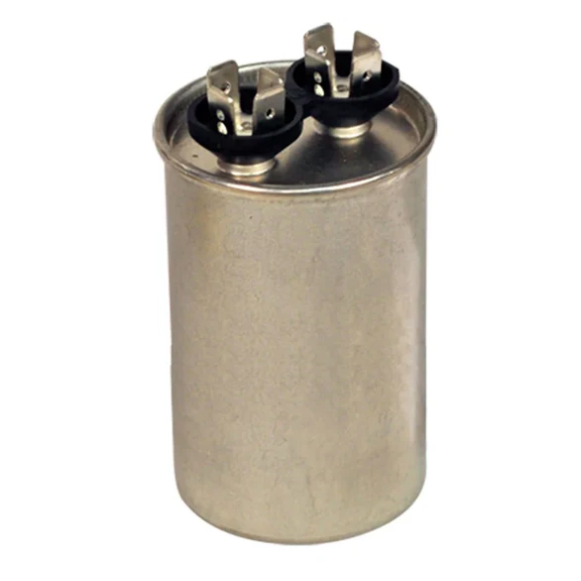When it comes to kickstarting your HVAC motor, not all capacitors perform the same. How do you decide between a 370V or 440V start capacitor? Which microfarad rating suits your AC motor best? Welcome to your one-stop guide on HVAC motor start capacitors—designed to help you, whether you're a DIY homeowner or an industrial contractor, make informed buying decisions at your trusted HVAC supply store.
What Exactly Are Start Capacitors? Why Do They Matter?
Start capacitors are electrical components that give your single-phase HVAC motor the initial boost needed to start turning. Unlike run capacitors that operate continuously, start capacitors deliver a short burst of energy, helping motors like blower, compressor, and condenser fan motors overcome inertia and begin spinning efficiently.
Think of them as the "jump starter" for your HVAC system. Without the right start capacitor, your motor struggles, resulting in noisy startups, overheating, or even complete failure.
Types of HVAC Motor Start Capacitors: How to Choose?
There are two primary types of HVAC motor start capacitors you’ll find:
- Electrolytic Capacitors: Most common, designed for short-duration, high-energy bursts needed during startup.
- Oil-Filled Capacitors: Offer better durability and heat resistance but come at a higher cost.
Pointers to keep in mind:
- Match the capacitor type with the motor’s OEM specifications to avoid compatibility issues.
- Check the physical size and terminal configuration—space and fit matter in tight HVAC units.
Understanding Microfarad and Voltage Ratings
Microfarad (μF) ratings indicate the capacitor’s ability to store charge. Common ratings for HVAC start capacitors range between 70μF and 200μF. Selecting the correct μF rating is crucial because:
- A lower μF rating might cause the motor to lag or fail to start.
- A higher μF rating can damage the motor windings or reduce lifespan.
Voltage ratings, often 370V or 440V, indicate the maximum voltage the capacitor can safely handle.
Why does voltage rating matter?
- Using a capacitor with a voltage rating lower than your system’s voltage risks capacitor failure and system shutdown.
- Higher voltage ratings improve reliability and can extend the lifespan in industrial settings.
Industrial Applications: Where Are Start Capacitors Used?
Start capacitors are essential in:
- Blower Motors: Provide smooth startup for air circulation units.
- Compressor Motors: Essential for refrigeration and air conditioning compressors that require high starting torque.
- Condenser Fan Motors: Help fans kick in quickly to maintain optimal system cooling.
This diversity means you must always cross-check motor specs with capacitor ratings before purchase, especially when sourcing from a wholesale HVAC supply store.
Myth Busters: Clearing Common Misconceptions
Myth 1: All capacitors are interchangeable in HVAC systems.
Fact: Capacitors have specific μF and voltage ratings tailored for motor types. Using the wrong capacitor can lead to system failure or costly repairs. Always check OEM specs.
Myth 2: Higher μF ratings improve motor performance.
Fact: Over-sizing the capacitor stresses the motor winding, causing overheating and early motor burnout. Stick to recommended μF ratings for your motor.
What Should You Look for When Buying?
- OEM Compatibility: Always align with the HVAC motor manufacturer’s recommended capacitor specs.
- Brand Reliability: Opt for capacitors from trusted brands available at your local HVAC supply store to ensure quality.
- Warranty and Certifications: Capacitors with UL certification and warranties guarantee safety and longevity.
Final Thoughts: Why Your HVAC Motor Start Capacitor Choice Matters
Choosing the right start capacitor is not just about replacing a faulty part—it’s about ensuring long-term performance and energy efficiency for your HVAC system. Whether you’re upgrading a residential AC or maintaining an industrial chiller, understanding capacitor types, microfarad ratings, and voltage requirements helps you avoid downtime and costly repairs.
By choosing wisely, you improve motor lifespan and optimize system efficiency—critical factors for contractors, DIY enthusiasts, and procurement specialists alike.
Got questions about selecting the best HVAC start capacitor 440V or matching a capacitor for a 3-ton AC motor? Your reliable HVAC supply store has the answers and products tailored to your needs.













